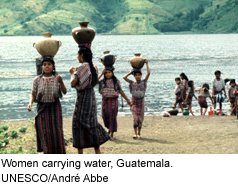UNESCO just published this report that was prepared by the International Information Center for Terminology (Infoterm). Terminology planning occurs at different levels: national, regional, language community, local community, institutional or organizational. There are also terminology planning activities in various professional fields such as chemistry, biology, physics and medicine. In addition, there is a terminology component to virtually all standardization and harmonization activities, whether in industry or elsewhere. A terminology policy or strategy, especially when conceived and implemented at the national level, needs to take into account highly complex demographic, cultural, ethno-linguistic and geo-linguistic and socio-psychological factors. Infoterm, was founded in 1971 by UNESCO with the objective to support and co-ordinate international co-operation in the field of terminology. Members are national, international and regional terminology institutions, organizations and networks, as well as specialized public or semi-public or other kind of non-profit institutions engaged in terminological activities.
